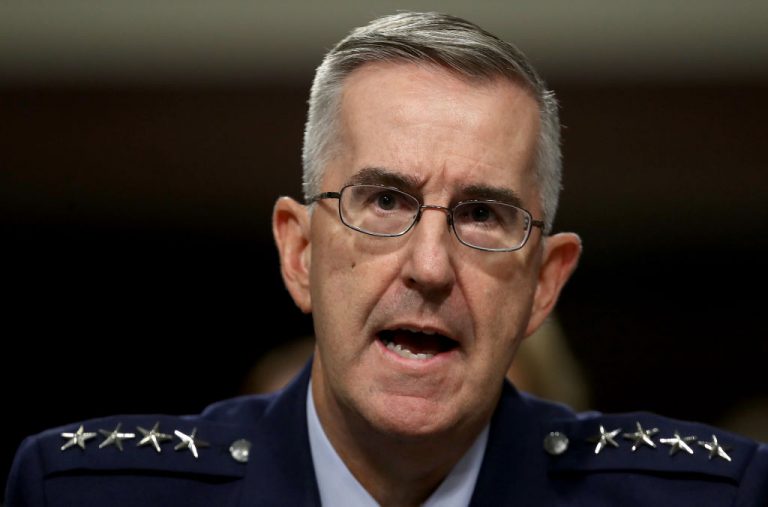China was reported to have conducted hypersonic missile tests this July and August. The first test involved launching a rocket that made use of a “fractional orbit bombardment” system capable of powering a nuclear-capable vehicle around the earth.
In a recent interview with CBS News, Vice-Chairman of the Joint Chiefs of Staff Gen. John Hyten provided new insights into Beijing’s hypersonic tests. According to Hyten, the second-highest official in the U.S. military, the test was mostly successful. Communist China was able to launch a long-range missile that went around the earth and deployed a hypersonic vehicle that traveled back to China and “impacted a target.”
Hyten expressed concerns over communist China potentially reaching the point where it is capable of launching a surprise nuclear attack on the U.S. The prime advantage that hypersonic missiles have over conventional intercontinental ballistic missiles is that they move much closer to earth and are not easily detected by radar.
Last week, the U.S. Secretary of Defense Lloyd Austin said that hypersonic missile testing by communist China raised concerns. When asked whether this was comparable to Russia launching the first artificial satellite Sputnik in the 1950s, Austin replied, “Those are terms that I wouldn’t use, I don’t personally use.”
Austin added that the U.S. was not interested in developing a specific super capability, such as hypersonic weapons, but would follow the strategy of having “robust capability across the board.”
Success
You are now signed up for our newsletter
Success
Check your email to complete sign up
According to the Financial Times, communist China’s hypersonic missiles had actually missed its designated target by several kilometers. However, this is the first time that any country has successfully sent a hypersonic missile around the earth. Beijing, however, has denied testing any kind of hypersonic missile, insisting that they were only testing a reusable spacecraft.
Responding to whether the test seemed like a “Sputnik moment” for the U.S., Hyten replied that from a technology perspective, what the Chinese achieved was “pretty impressive.”
“But Sputnik created a sense of urgency in the United States. The test on July 27 did not create that sense of urgency. I think it probably should create a sense of urgency,” he added.
One of the major areas of concern is the pace at which these weapons are being developed and tested in communist China, leaving the U.S. far behind. Hyten stated that over the past five years, the communist regime had already implemented hundreds of hypersonic tests while the U.S. just completed nine tests. While China deployed its first hypersonic weapon, the United States still has a lot of ground to cover and is years away from fielding such equipment.
In an interview with Fox News, Jeffrey Lewis, a nuclear weapons expert from the Middlebury Institute of International Studies at Monterey, suggested employing a “degree of skepticism” with regards to communist China’s capabilities. Lewis also questioned whether these developments were as surprising as they were being made out to be.
“I would be careful about exaggerating characterizations that may help excuse a mundane intelligence failure… If we say some innovation is impossible to imagine, then no one is really responsible for missing it,” Lewis said.
John Venable, from the D.C.-based think tank The Heritage Foundation, said it would be wrong to think that communist China’s weapons developments have caught the U.S. government by surprise. The Chinese have conducted nine successful tests for this specific kind of glide vehicle since 2014.















